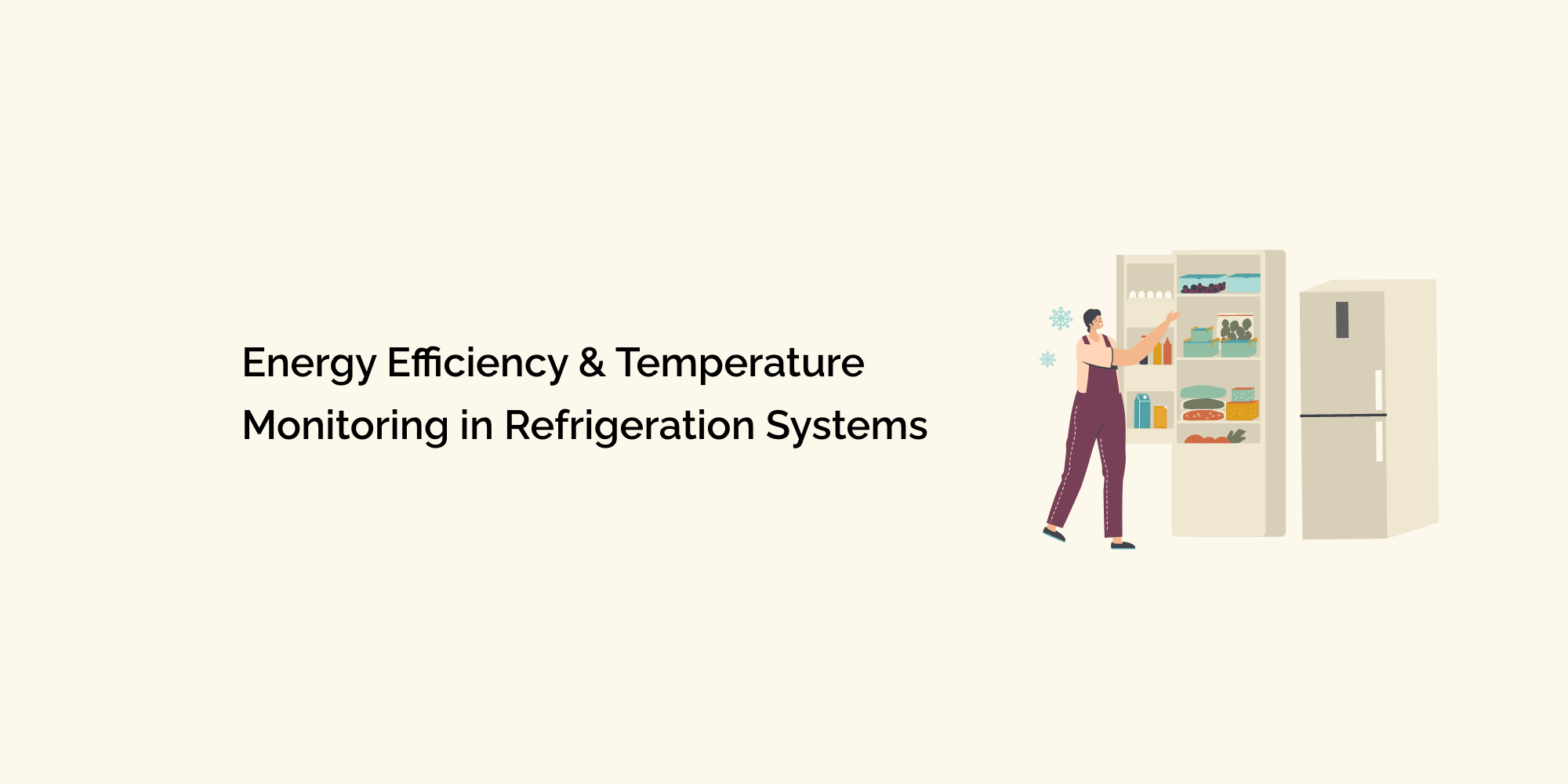Refrigeration systems are essential for a wide range of industries, including food storage, pharmaceuticals, and manufacturing. These systems are responsible for maintaining optimal temperatures to preserve perishable goods. However, inefficient refrigeration can lead to significant energy waste, increased operational costs, and potential product spoilage.
In this blog, we will delve into the importance of energy efficiency and temperature monitoring in refrigeration systems, along with practical strategies to maximize cooling performance and reduce expenses.
The Significance of Energy Efficiency in Refrigeration Systems:
Refrigeration systems are notorious for their high energy consumption, making energy efficiency a crucial factor to consider. Here's why:
Environmental Impact:
Refrigeration systems consume a significant amount of energy, contributing to greenhouse gas emissions. Energy-efficient practices help mitigate the environmental impact by reducing carbon footprints and preserving natural resources.
Cost Considerations:
Inefficient refrigeration systems can lead to skyrocketing operational costs. By focusing on energy efficiency, businesses can significantly reduce their energy bills, positively impacting their bottom line.
Regulatory Standards:
Compliance with energy efficiency regulations and standards is essential to avoid penalties and ensure responsible environmental practices. Governments worldwide are implementing stricter regulations to encourage businesses to adopt energy-efficient technologies and practices.
Temperature Monitoring:
A Crucial Component of Efficient Refrigeration Systems: Temperature control plays a vital role in the preservation of product quality and safety. Here's why temperature monitoring is crucial:
Temperature Control Importance:
Maintaining accurate and consistent temperatures is critical for preserving the integrity of perishable goods. Temperature fluctuations can lead to food spoilage, compromised pharmaceuticals, and decreased production efficiency.
The Consequences of Temperature Fluctuations:
Temperature variations can have severe consequences for businesses. For example, in the food industry, improper temperature control can result in the growth of harmful bacteria, leading to foodborne illnesses and potential legal liabilities. In the pharmaceutical industry, temperature fluctuations can degrade medications, rendering them ineffective.
Remote Monitoring Technologies:
Advanced temperature monitoring systems offer real-time data collection and analysis, enabling businesses to monitor and control temperatures remotely. These systems provide insights into temperature trends, potential issues, and proactive alerts, allowing for timely intervention and risk mitigation.
Strategies for Enhancing Energy Efficiency in Refrigeration Systems:
Maximizing energy efficiency in refrigeration systems requires a holistic approach. Here are some effective strategies to consider:
-
Optimal System Design: Choosing appropriate equipment, sizing, and insulation is crucial for efficient cooling. Investing in energy-efficient technologies such as high-efficiency compressors and properly insulated systems can significantly reduce energy waste.
-
Preventive Maintenance: Regular maintenance and inspections are essential for identifying and rectifying potential issues before they escalate. Properly maintained systems operate more efficiently, reducing energy consumption and extending the lifespan of equipment.
-
Energy-Efficient Components: Upgrading to energy-saving components like electronically commutated motors and energy recovery systems can yield substantial energy savings. These components optimize energy usage and minimize wastage.
-
Smart Control Systems: Intelligent control systems adjust cooling capacity based on real-time demand, optimizing energy usage and reducing waste. These systems offer greater control and flexibility while ensuring optimal temperature conditions.
-
Heat Recovery: Waste heat generated by refrigeration systems can be repurposed for other processes, improving overall energy efficiency. Heat recovery systems can be integrated into the refrigeration setup to capture and utilize waste heat, reducing energy consumption further.
The Role of Data Analytics in Energy Optimization:
Leveraging data analytics in refrigeration systems can provide valuable insights and enhance energy optimization. Here's how:
-
Real-Time Monitoring and Alerts: Data analytics platforms enable real-time monitoring of temperature variations. They can detect abnormalities and provide proactive alerts, allowing for timely intervention and minimizing the risk of product spoilage or system failure.
-
Predictive Maintenance: By analyzing data patterns and system performance, predictive maintenance becomes possible. Predictive analytics can help identify potential issues before they cause significant disruptions, enabling timely repairs and reducing downtime.
-
Energy Consumption Analysis: Analyzing energy usage patterns can provide valuable insights into consumption patterns, identifying areas of improvement. By understanding energy usage and wastage, businesses can make informed decisions to optimize energy efficiency further.
-
Continuous Improvement: Data analytics offers an iterative approach to energy optimization. By continuously monitoring and analyzing data, businesses can identify new opportunities for improvement, implement changes, and track the results. This ongoing process ensures sustained energy efficiency gains.
Conclusion:
Energy efficiency and temperature monitoring are vital for maximizing the performance and cost-effectiveness of refrigeration systems. By implementing strategies such as optimal system design, preventive maintenance, energy-efficient components, smart control systems, and heat recovery, businesses can significantly reduce energy waste, minimize operational costs, and enhance product quality.
Leveraging data analytics for real-time monitoring and continuous improvement empowers organizations to stay ahead of potential issues, ensuring reliable and efficient refrigeration operations. As the demand for sustainable practices continues to grow, prioritizing energy efficiency and temperature monitoring becomes increasingly vital for businesses across industries. By adopting these practices, businesses can achieve their sustainability goals while reaping the financial benefits of energy optimization.








